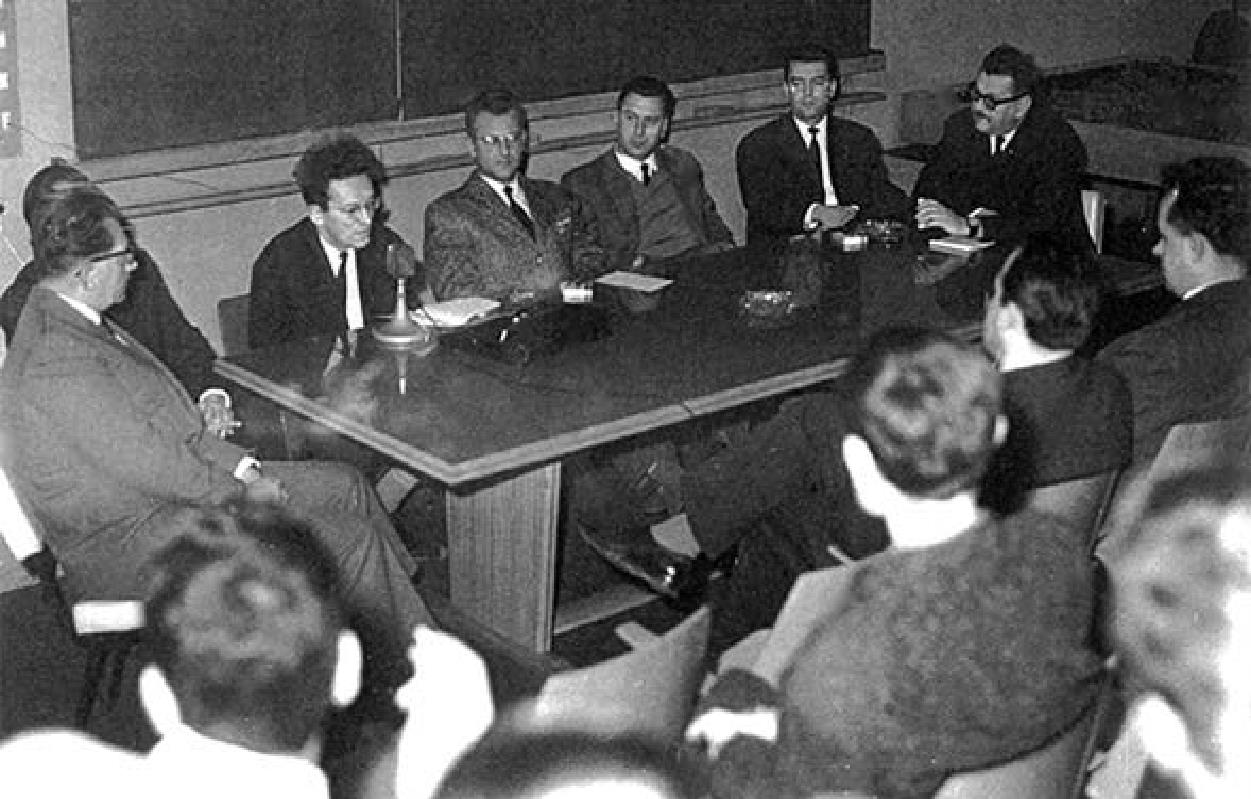
The first public appearance of the entire editorial board of Praxis (Student Centre, Zagreb, end of 1964). From left to right: Rudi Supek, behind him (obscured from view), Branko Bošnjak, Gajo Petrović (editor-in-chief), Danilo Pejović (editor-in-chief), Predrag Vranicki, Milan Kangrga, Danko Grlić; far right (with back turned): the director of the Student Centre, M. Heremić, next to him, Antun Žvan.
Juraj Katalenac
Yugoslav socialism was a unique political experiment, not just because it said ‘no’ to Stalin in 1948 and implemented a system of workers’ self-management, but because of the uniqueness of the ‘left opposition’ and the critique of the political elite that emerged there. Unlike countries behind the ‘Iron Curtain’ Yugoslavia had a higher level of tolerance for political criticism – especially when it came from intellectual circles or opposition within the League of Communists.[1] When Aleksandar Ranković, head of state security service and prominent unitarist retired the space for free expression expanded, allowing cultural movements such as Yugoslav Black Wave cinema[2], and the new wave and underground music scenes to flourish[3]. There were obviously limits to this tolerance though. The League did not tolerate movements and initiatives that emerged in response to the realities of work life, such as workplace and other class-based struggles.
The emergence of the philosophical journal Praxis (1964-1974) and the Korčula Summer School (1963-1974) was an important political development as it was effectively the ‘left opposition’ within Yugoslavia. It was seen by some in ‘the west’ as exotic because few of its essays were translated and published in English. For this reason, a lot of ‘mist’ surrounds it. For example, Wikipedia and Marxist Internet Archive contain a lot of misinformation. The Memory of the World archive[4] tried to rectify this by uploading most issues of Praxis and other miscellaneous material. However, the language barrier remains as their ‘international editions’ did not include the vast bulk of the content produced and published by them.
In this essay I will present their story and explain why they were and remain an important development in history of Yugoslavia and their successor states.

